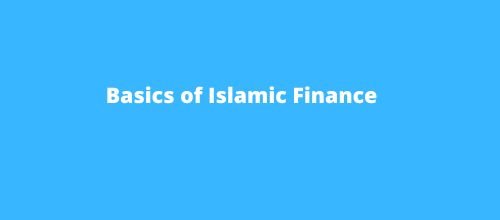Islamic finance is a financial system that operates financing activities under Islam law (Shariah). It is based on the teachings conveyed in the Quran, Hadith (words of the prophet Muhammad), and other Islamic jurisprudence. Unlike conventional finance, Islamic finance respects the core values of equity, social responsibility, and ethics, especially in business transactions. Below are some core principles of Islamic finance.
Prohibition of Riba (Interest)
Riba (interest) is considered a major sin and is forbidden in Islamic finance. Earning money from money, without a relatable economic activity or value creation, is considered exploitative and unjust. Instead, profits must come from legitimate trade or investment in assets.
Risk Sharing
Islamic finance emphasises risk-sharing rather than risk-shifting. Investors must share in both the profit and the risk of any business venture. Financial contracts like Mudarabah (profit-sharing) and Musharakah (joint venture) reflect this principle, where both parties share profits and losses.
Asset-Backed Financing
All transactions must be linked to physical assets or services. This means that speculative activities such as gambling or excessive uncertainty, known as Gharar are prohibited. Moreover, financing cannot be provided for businesses or activities considered harmful or unethical under Islamic law, like alcohol, gambling, or interest-based financial institutions.
Prevention of Gharar (Unnecessary Risk Taking)
Investments must be in ventures that are halal, i.e. permissible under Islamic law. This ethical dimension ensures that funds are directed towards socially beneficial projects and not towards activities that are harmful or unethical.
Forms of Contracts in Islamic Finance:
Islamic financial transactions are structured through various forms of contracts:
- Mudarabah: A profit-sharing contract where one party provides capital, and the other provides expertise and management. Profits are shared according to a pre-agreed ratio, but losses are borne by the provider of capital.
- Musharakah: A joint venture where all partners contribute capital, and profits and losses are shared based on the contribution.
- Murabaha: A cost-plus financing arrangement where a financier purchases an asset and sells it to the buyer at a marked-up (profit margin) price. The buyer repays in instalments, but the mark-up is known from the start, avoiding interest. While both the markup (profit) in Murabaha and interest in conventional loans are fixed at the start, they differ fundamentally in their nature and underlying principles: the profit in Murabaha comes from a sale of an asset.
- Ijara: A lease-based contract where one party leases an asset to another, allowing the use of the asset while earning rental income.
- Sukuk: Islamic bonds that represent ownership in an asset or business rather than debt. Sukuk holders earn returns based on the performance of the asset or project they invested in, rather than receiving fixed interest payments. The key difference between Sukuk and conventional bonds is that Sukuk represents ownership in a tangible asset or project, while bonds represent debt. Sukuk generates returns based on the performance of the asset, avoiding riba (interest). In contrast, bonds provide fixed interest payments to investors, regardless of the asset’s performance. Sukuk must comply with Islamic principles, ensuring investments in ethical, Shariah-compliant ventures, whereas bonds have no such restrictions.
Islamic Banks and Financial Institutions
Islamic banks and financial institutions operate according to these principles, offering services such as savings accounts, investment accounts, home financing, and even insurance (Takaful), all structured in ways that comply with Islamic law.




